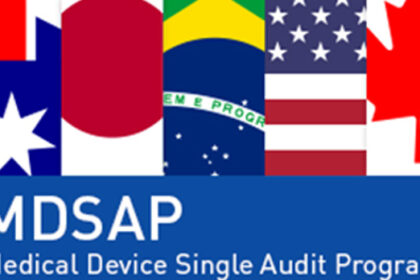
The IMDRF, like its predecessor, the Global Harmonization Task Force, recognized the value of developing a global standard for medical device quality that would grant companies access to marketplaces around the world based on the results of a single audit. After establishing a working group for the MDSAP in 2012, the IMDRF was able to initiate a three-year pilot project of the MDSAP that would run between 2014 and 2016 in participating countries.
The main goal of the MDSAP program is to establish an international coalition that can work together to provide medical device manufacturing oversight and improve safety outcomes on a global scale. A credible single audit program whose results are accepted globally would significantly reduce regulatory burden for medical device manufacturers, along with minimizing the frequent business interruptions associated with the current multiple audit system. The MDSAP would reduce costs for regulators – instead of each regulator conducting their own costly audit; a single audit would suffice for the acceptance of the product everywhere.
The IMDRF has built a strong international coalition that includes some of the world’s most important marketplaces and manufacturing/development hubs for medical devices. Here’s how the participating agencies around the world are moving towards adoption of the MDSAP.
United States FDA – American medical device companies should know that the FDA will accept the results of MDSAP audits rather than conducting a routine inspection, but will still conduct its own initial visits to manufacturers and “for cause” inspections.
Europe – While the current MDSAP program is based on the content of ISO 13485:2003, the EU now uses the updated ISO 13485:2016 as its standard for medical device QMS compliance and has not yet signed on to adopt the MDSAP.
Health Canada – After a successful three-year pilot of the MDSAP during 2014-2016, Health Canada decided that after January 1st, 2019, it would make a full transition to accepting only MDSAP compliance audits from medical device manufacturers.
ANVISA Brazil – Brazilian authorities plan to accept MDSAP for initial audits, but will continue to conduct their own inspections and audits for higher-risk devices.
MHLW Japan – Japanese authorities have fully adopted the MDSAP and will accept MDSAP audit results in place of an on-site J-QMS audit.
TGA Australia – Another 100% adopter of the MDSAP, the Australian Therapeutic Goods Administration now recognizes that medical device manufacturers who pass an MDSAP audit have satisfied their QMS requirements. The TGA recognizes MDSAP certificates as equivalent to CE certificates. For further information or any other queries, please contact us.






